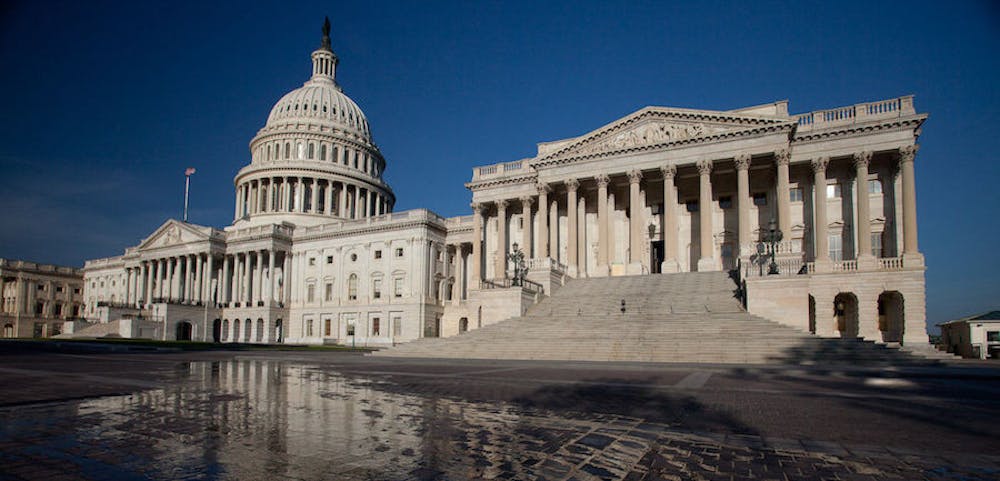Connor Carlin
Staff Writer
On Aug. 17, Senator Bob Menendez (D-NJ), Chair of the Senate Foreign Relations Committee, released a statement highly critical of President Biden’s withdrawal from Afghanistan, and announced an investigation into the Administration’s strategic and logistical failures which led to the collapse of the country to Taliban forces on Aug. 15.
The investigation seeks to understand why the United States was so chaotic in its exit and why the Taliban was able to so quickly retake Afghanistan. For context, according to Politico, experts warned that the Taliban may invade Kabul, the capital city of Afghanistan, within six months. In reality, the invasion occurred in only two weeks.
The Taliban’s rapid victory and the near evaporation of the Afghan army have shocked both experts and the world at large. Menendez highlighted in his statement that the collapse was the product of months of growing instability and violence, which he stated could be tied to the Doha Agreement, an agreement between the Trump Administration and the Taliban.

This deal stated that the Taliban would help prevent anti-American terrorist groups, namely Al-Qaeda, from using Afghanistan as a staging ground. In return, the US agreed to withdraw all allied military personnel from the country by May 1, 2021. Other key provisions included the release of 5,000 Taliban fighters and for the Taliban to negotiate a power-sharing agreement with the Afghan national government. Menendez stated that the “wholly inadequate deal,” which he claims failed to hold the Taliban to account or plan for the withdrawal, will also be reviewed as part of the investigation.
The Biden Administration has received criticism from both Republicans and Democrats for its slow evacuation from the country and its seeming lack of planning in the face of an emboldened Taliban. According to AP, Biden claimed that the Doha Agreement forced him into an impossible decision of either risking massive Taliban offenses against Americans or accepting a messy and chaotic withdrawal. In an interview with ABC News, President Biden also acknowledged that he would have “tried to figure out how to withdraw” himself if the Doha Agreement was not signed, a position he has held since his time serving in the Obama administration.
Lawmakers such as Menendez, who spoke out against Biden’s revised withdrawal deadline of Sept. 11, now seem prepared to end Congress’s honeymoon with the Administration. With Democrats in control of both chambers, there has been minimal pushback against the executive branch’s agenda until now. The coming investigations into the Afghanistan withdrawal represent the first major roadblock of congressional oversight, as committee leaders in both the House and Senate vow to press the Administration on, as Senator Mark Warner (D-VA), chair of the Senate Intelligence Committee, stated, “why we weren’t prepared for a worst-case scenario.”
While details are still being released, news outlets have begun to examine the available information to create a rough sketch of the crucial decisions made prior to the fall of Kabul. The New York Times reported that the Biden Administration overestimated the ability of the Afghan military and government to continue fighting without US support, and as a result prioritized the safe evacuation of US troops over American citizens and Afghan allies. At the same time, Afghanistan’s President Ghani pressed Biden to limit the number of exit visas to Afghan interpreters and prevent high-profile evacuations out of fear that such an event would seem as though the US had lost faith in his government. Together, these missteps led to Kabul being populated by US allies with limited access to exit visas, a rapidly diminishing US military presence, just as the Taliban were making their final advance on the capital.
While sections of the Afghan military fought back against Taliban forces across the country in the last days of the war, most of the armed forces surrendered without a fight, their confidence destroyed by the disappearance of US aid. Ghani, though publicly promising the Biden Administration that he would fight on, quickly fled Kabul by helicopter, not before ordering the passport office to stop issuing new documents to prevent a mass exodus of his citizens. Biden, though standing by his withdrawal plans, publicly stated that he “took the consensus opinion” that it was unlikely that the Taliban would take Afghanistan within the year, an opinion which has been shown to have been wrong.
Questions are rampant over how to prepare for new dangers to American security with a renewed Taliban government, how 20 years of U.S. nation building could collapse so easily and what role America must play in handling the new humanitarian crisis it has been so instrumental in creating. All these questions will likely be answered in Senator Menendez’s investigation of the withdrawal, providing a final retrospective on a war that young Americans have never known a world without.










